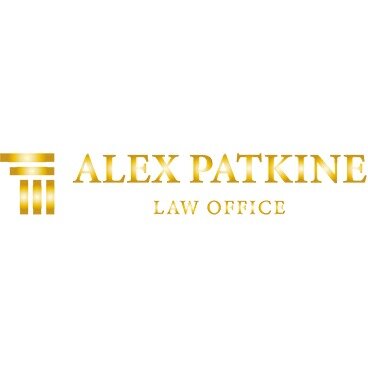Best Oil, Gas & Energy Lawyers in Haifa
Share your needs with us, get contacted by law firms.
Free. Takes 2 min.
List of the best lawyers in Haifa, Israel
About Oil, Gas & Energy Law in Haifa, Israel
Haifa, located on the northern coast of Israel, is a significant hub for the country's oil, gas, and energy sectors. The city's proximity to several major offshore gas fields and its strong industrial base make it a critical location for energy-related activities. Israel's energy landscape has evolved dramatically in recent years, thanks partly to large natural gas discoveries in the Eastern Mediterranean. This burgeoning sector is subject to a complex array of laws and regulations aimed at ensuring sustainable and responsible resource management.
Why You May Need a Lawyer
The oil, gas, and energy sector is highly regulated, and navigating its legal requirements can be challenging. Here are some common situations where legal assistance might be necessary:
1. Contract Negotiation and Drafting: Whether you're a company seeking to enter a joint venture or an individual landowner negotiating drilling rights, legal advice is crucial.
2. Compliance with Regulations: Ensuring that activities comply with local, national, and international laws and regulations can be complex.
3. Dispute Resolution: Conflicts may arise regarding contract terms, environmental regulations, and more. Legal representation can help resolve these disputes effectively.
4. Intellectual Property: Protecting technological innovations and proprietary methods often requires specialized legal expertise.
5. Environmental Concerns: Given the environmental impact of energy extraction and production, compliance with environmental laws is critical.
Local Laws Overview
Several critical laws and regulations govern the oil, gas, and energy sector in Haifa:
1. Petroleum Law (1952): This law governs the exploration and production of petroleum resources in Israel.
2. Natural Gas Sector Law (2002): This law provides a framework for the regulation of the natural gas sector, including licensing and distribution operations.
3. Environmental Protection Laws: Various laws aimed at protecting the environment affect energy operations. These include the Clean Air Law (2008) and the Water Law (1959).
4. Energy Resources Law (1989): This law establishes guidelines for energy conservation and the efficient use of energy resources.
5. Renewable Energy Regulations: Israel is focused on promoting renewable energy sources, and several incentives and regulations are in place to support these initiatives.
Frequently Asked Questions
1. What is the significance of natural gas discoveries in the Eastern Mediterranean?
These discoveries have transformed Israel from an energy importer to a potentially significant exporter, with substantial economic and geopolitical implications.
2. How can I get a license for drilling or exploration?
Licenses are issued by the Ministry of Energy in Israel. The process involves several steps, including application submission, regulatory compliance, and environmental assessments.
3. What should I consider when negotiating an energy contract?
Key factors include contract duration, financial terms, regulatory compliance, dispute resolution mechanisms, and environmental obligations.
4. Are there specific environmental regulations I need to be aware of?
Yes, activities must comply with laws like the Clean Air Law, Water Law, and various Ministry of Environmental Protection guidelines.
5. What are the penalties for non-compliance with energy regulations?
Penalties can range from fines and sanctions to the revocation of operational licenses and legal action.
6. How can renewable energy projects get support in Haifa?
Government incentives, grants, and favorable regulations are in place to support renewable energy projects.
7. What role does Haifa play in Israel's energy sector?
Haifa is a strategic location due to its proximity to offshore gas fields, its industrial capabilities, and its port facilities, all of which are crucial for energy logistics.
8. Do I need to consider international laws and agreements?
Yes, international maritime and environmental laws, as well as regional agreements, can impact operations in the oil and gas sector.
9. How do I address local community concerns for an energy project?
Engaging with local communities, conducting environmental impact assessments, and ensuring transparent operations can help address concerns.
10. What is the role of the Ministry of Energy?
The Ministry of Energy oversees the regulation, licensing, and policy-making related to Israel's oil, gas, and energy sectors.
Additional Resources
For further assistance, you may consider consulting the following resources:
Ministry of Energy: This governmental body provides guidelines and updates on laws and regulations in the energy sector.
Ministry of Environmental Protection: Offers information on environmental regulations and compliance requirements.
Israel Electric Corporation: A key player in energy distribution and infrastructure in Israel.
Energy Companies and Industry Associations: Organizations like Noble Energy and the Israel Natural Gas Lines Company can provide industry-specific information and updates.
Next Steps
If you need legal assistance in the oil, gas, and energy sector in Haifa, follow these steps:
1. Research: Conduct thorough research to understand your specific legal needs.
2. Consult Experts: Seek advice from legal professionals who specialize in energy law. Initial consultations can provide valuable insights.
3. Prepare Documentation: Gather relevant documentation, such as contracts, licenses, and compliance records, to present to your lawyer.
4. Legal Representation: Engage a qualified lawyer to represent you, whether for contract negotiation, compliance issues, or dispute resolution.
5. Continuous Monitoring: Stay updated on regulatory changes and maintain ongoing compliance with applicable laws and regulations.
Lawzana helps you find the best lawyers and law firms in Haifa through a curated and pre-screened list of qualified legal professionals. Our platform offers rankings and detailed profiles of attorneys and law firms, allowing you to compare based on practice areas, including Oil, Gas & Energy, experience, and client feedback.
Each profile includes a description of the firm's areas of practice, client reviews, team members and partners, year of establishment, spoken languages, office locations, contact information, social media presence, and any published articles or resources. Most firms on our platform speak English and are experienced in both local and international legal matters.
Get a quote from top-rated law firms in Haifa, Israel — quickly, securely, and without unnecessary hassle.
Disclaimer:
The information provided on this page is for general informational purposes only and does not constitute legal advice. While we strive to ensure the accuracy and relevance of the content, legal information may change over time, and interpretations of the law can vary. You should always consult with a qualified legal professional for advice specific to your situation.
We disclaim all liability for actions taken or not taken based on the content of this page. If you believe any information is incorrect or outdated, please contact us, and we will review and update it where appropriate.















